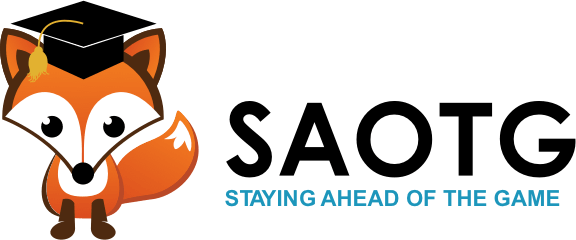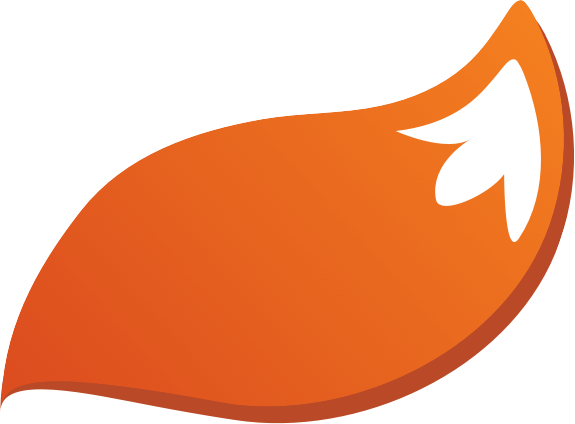We offer one-on-one academic and coaching services to hundreds of students each year. This kind of academic support can be one of the most effective ways to boost academic performance. But academic coaching is a two-party endeavor. If students understand the short-term goals of each session and the long-term goals of the process, everyone benefits. Yet many students treat it merely as a homework rescue mission or an occasional lifeline before a big test.
Whether a student needs help with math, science, writing, or test prep, the process of preparing, participating, and following up can make all the difference between barely catching up and truly excelling. While treading water is fine in the short-term, we want students to swim. So, rather than simply showing up and passively letting the tutor steer the ship, students should shape each meeting to address specific goals, clarify confusing concepts, and practice strategies that lead to genuine academic growth. When students shift their mindset from “getting the right answers” to “learning how to learn,” academic coaching becomes a powerful force for long-term success.
In sum, the value of one-on-one tutoring is the personalized attention it provides. In a busy classroom, there might be limited time for your teacher to thoroughly explain everything you find perplexing, especially if other students need help too. During a tutoring session, however, you are front and center. Plus, subject-matter expert teachers don’t have time to focus on all of the Executive Function skills that really drive successful students. One-on-one sessions allow for targeted practice in organization, time management, learning skills and impression management.
Yet these benefits only shine through when you come prepared with clear objectives, relevant materials, and well-articulated questions. Coaches, no matter how skilled, cannot read your mind. They rely on your honesty about what feels difficult and your willingness to engage actively. When you adopt this proactive approach, every minute of the session counts, and you leave feeling more competent and confident. This blog offers a structured approach to getting the most out of one-on-one coaching.
Before the Session: Clarify Your Goals and Gather Materials
A productive session actually begins before you ever meet your coach. Think of it like planning a trip: you decide where you want to go and what you need to bring, ensuring you have both a destination and the tools to reach it. In practical terms, this means reflecting on your coursework, tests, quizzes, or assignments and pinpointing exactly what you need to improve. Instead of saying something vague like “I’m not good at chemistry,” you might decide that you specifically need to learn how to balance chemical equations or understand specific reaction types. If you struggle with essay writing, you might set a goal of refining your thesis statements or reviewing proper paragraph structure. You might consider what patterns persist across several subjects. For example, students might struggle to turn work in on time or to perform on cumulative exams. The student needs to conduct this inquiry. By narrowing your focus, you transform a broad concern into a clear target.
This rule doesn’t just apply to the first session. In fact, students should conduct this inquiry every week. Once you know what you hope to achieve, collect anything that might be relevant to the session. This can include textbooks, class notes, past homework attempts with errors highlighted, printed study guides, or even rubrics from your teacher. Having these items at hand ensures that the tutor sees exactly where your confusion arises. If you’re working on an essay, mark the sections where you get stuck or suspect that your argument might be weak. If you’re reviewing a test you did poorly on, look it over beforehand, circle the toughest questions, and make a note of any persistent misunderstandings. Showing up with these materials and insights allows your tutor to home in on your needs without losing time trying to figure out the basics. This kind of preparation might seem tedious, but it spares you from guesswork and maximizes the hour you spend learning.
During the Session: Engage, Ask, and Practice
Many students assume that working with an academic coach is like attending a mini-lecture where they listen silently while the tutor does all the talking. Effective coaching, however, is a two-way conversation that thrives on your active engagement. Remember that your coach’s role isn’t just to supply short-term answers; it’s to guide you toward long-term success. This works best when you articulate your reasoning out loud, pause to ask for clarification, or even challenge yourself with a mini “teach-back” moment where you explain the concept in your own words.
For subject-specific instruction (let’s say you’re working on geometry proofs), one useful tactic is to keep a dedicated notebook or document open during the session. Whenever your coach demonstrates a problem-solving method or tactic, jot down the key steps in your own phrasing. Resist the temptation to rely solely on your memory. Structured note-taking not only provides a record you can consult later but also helps you process the information more deeply as you write it. If something still seems unclear—maybe the explanation doesn’t line up with what you learned in class—voice that confusion right away. Coaches need your feedback to adjust their approach, offer more examples, or reframe the information in a way that clicks for you.
Active engagement is critical. If you’re studying algebra and your tutor demonstrates a technique for factoring polynomials, immediately try applying that technique to a similar problem. Work through it step by step while talking through your thought process. By tackling a problem firsthand under your coach’s guidance, you reinforce the skill and confirm that you really grasp it, rather than just nodding in agreement while someone else solves it. Even if you make mistakes, those errors reveal valuable insights about where you need more practice or a different explanation.
After the Session: Review, Apply, and Reflect
Coaching does not end the moment the coach leaves your house. The real test of how much you learned will come in the days following the session, when you study independently or face new assignments in class. Many students feel a burst of understanding during the session itself but struggle to retain that clarity later. To combat this drop-off, set aside time—ideally on the same day—to review your session notes. Rewrite any messy parts, clarify any shorthand that might confuse you later, and summarize the main takeaways in your own words. By doing this promptly, you move the newly learned material from short-term awareness into a more durable memory.
Another important step is to put what you learned into practice as soon as possible. If your coach helped you understand a specific physics concept, seek out new practice problems to confirm that your grasp of the concept remains strong. If you spent the session refining an essay outline, open your draft and incorporate those revisions right away, while the instructions and your tutor’s feedback are still fresh. This kind of application cements your learning and exposes any lingering areas of confusion. When you test your new skills on your own, you either verify your mastery or discover fresh questions to bring to the next session. Both outcomes lead to progress.
Reflection is equally important. Ask yourself how the session went, whether you fully achieved your stated goals, and what you might need to tackle next time. If you still feel uncertain about some points, jot them down. If you realize your mistakes typically come from a misunderstanding of certain rules or formulas, make a note to address that in your next tutoring appointment. This ongoing cycle—prepare, engage, apply, reflect—keeps you moving forward. Each session then builds on the momentum of the previous one, rather than starting from scratch.
Cultivating Long-Term Growth Through Consistency
The most powerful coaching experiences are not one-time miracles but rather a series of interlinked sessions that gradually sharpen your academic edge. Although last-minute tutoring can help you salvage a tricky situation before an exam, a steady, consistent approach works wonders for actual growth. Weekly or bi-weekly meetings provide structure and accountability, ensuring that you regularly reassess your academic needs and practice new skills. Over time, you become more adept at identifying your weak spots on your own and more confident about tackling them, even without outside help.
Academic coaching also lays a foundation of self-directed learning. Yes, it’s fantastic to have an expert confirm which steps to take for a challenging math problem, but one of the ultimate rewards of tutoring is learning how to figure things out independently. As you progress, you’ll find yourself asking different kinds of questions, looking for deeper connections within the material, and exploring advanced techniques that go beyond merely “getting the right answer.” This is the essence of taking charge of your education rather than waiting passively for improvement to arrive.
In many ways, coaching highlights the difference between superficial learning—such as memorizing a formula—and genuine mastery, which includes understanding how to adapt that formula to novel problems or how to derive it yourself if needed. The more you apply your tutor’s guidance and reflect on your learning process, the more you develop habits that serve you in future courses and even in life beyond school. Skills like critical thinking, effective communication, and problem-solving under pressure are not limited to a single assignment or test; they form the backbone of academic resilience and intellectual maturity.
If you are eager to discover more in-depth tips on how to fine-tune your study habits, improve note-taking strategies, or solidify your Executive Function skills, we explore the rest of our blog. You will find a variety of articles designed to guide you toward more effective learning, better organization, and stronger academic performance.
We also encourage you to learn more about our tutoring and academic coaching services, where you can personalize your plan to match your goals and challenges. Embrace a structured approach to tutoring and watch as each session becomes a pivotal step toward reaching new heights in your educational journey.







